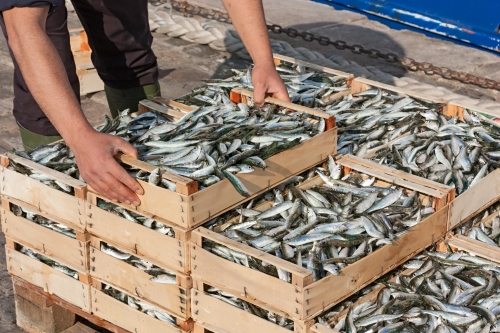The fish or seafood you eat in the future may come from some unexpected sources, according to the latest series of interviews from the Institute of Food Technologists (IFT) FutureFood 2050 publishing initiative.
In this series, FutureFood 2050 talks with an oceanographer, a chef, a biochemist, an advocate, and an entrepreneur about new and innovative ways to address the global challenge of feeding the world healthfully with limited resources.
“Science and technology are making it possible to generate new sustainable solutions that will help us meet the growing demands for more fish, shellfish and other aquatic species,” said Mary Ellen Camire, PhD, CFS, food science professor at the University of Maine and IFT president elect.
“Ultimately this will not only protect the environment, but it also generates new businesses driven by sustainability.”
The experts and visionaries profiled for FutureFood 2050 this month include:
• Sylvia Earle, who is chair of the Deep Ocean Exploration and Research Center and National Geographic explorer-in-residence.
She has dedicated her time to marine conservation and improving the environment.
• Rick Moonen, who is a chef and sustainability activist who is only serving fish that are caught or farmed in ways that do not harm the environment
• Scott Nichols, a trained biochemist and the director of Verlasso, where they are using genetically engineered feed, rather than fish, to feed their stock in Patagonia Chile.
• Malcolm Beveridge, who is former director of Aquaculture and Genetic Improvement at the WorldFish in Zambia.
He advocates the adoption and expansion of aquaculture facilities in Africa.
• Josh Goldman is the founder and CEO of Austrailis in Vietnam, a large and vertically integrated barramundi producer that is focused on sustainable fish farming on land and at sea.
In her podcast, Sylvia Earle explains. “We now know so much about water quality, about the actual nutrient cycles, about what it takes to grow animals in effective and humane ways that were simply not thought about in the early days of aquaculture.”
“I think that there is a change coming because successful systems are the ones that do take the new knowledge into account.”
FutureFood 2050 is a multi-year program highlighting the people and stories leading the efforts in finding solutions to a healthier, safer and better nourished planet to feed 9 billion+ people by 2050.
Through 2015, the program will release 75 interviews with the world’s most impactful leaders in food and science.
The interviews on the future of fish are the fifth installment of FutureFood’s interview series, following sustainability, women in food science, food waste, and food security and nutrition in Africa.
Next year, FutureFood 2050 will also debut a documentary film exploring how the science of food will contribute solutions to feeding the world.










